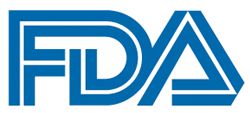FDA Grants Etoposide Toniribate Orphan Drug Designation for Advanced Biliary Cancer
The FDA has granted an orphan drug designation to the investigational agent etoposide toniribate for the treatment of patients with relapsed/refractory biliary tract cancer, according to Imbrium Therapeutics, the company developing the topoisomerase II inhibitor.

The FDA has granted an orphan drug designation to the investigational agent etoposide toniribate (EDO-S7.1) for the treatment of patients with relapsed/refractory biliary tract cancer (BTC), according to Imbrium Therapeutics, the company developing the topoisomerase II inhibitor.
“We are pleased that the FDA has granted orphan drug designation for etoposide toniribate as we believe, once approved, it can be an important clinical advance for patients suffering from relapsed/refractory biliary tract cancer, a patient population that has limited treatment options,” said Paul Medeiros, president of Imbrium Therapeutics. “This designation represents Imbrium’s first milestone in oncology and underscores our commitment to advance the clinical development of oncology chemotherapeutics while actively collaborating to advance treatments across our therapeutic portfolio.”
The designation was granted based on data from a phase II trial that evaluated etoposide toniribate in patients with advanced biliary cancers. The multicenter, open-label trial included 27 patients with unresectable biliary tract cancer who were randomized in a 1:1 fashion to receive 200 or 150 mg/m2of intravenous etoposide toniribate (n = 14) or best supportive care (BSC; n = 13). Etoposide toniribate was given intravenously in 3-week cycles given on days 1 to 5. Patients were assessed every 4 weeks and were treated until disease progression. Patients treated with BSC were permitted to cross over to the experimental arm if they progressed.
The median patient age was 60.3 years in the etoposide toniribate arm, with 57% of the patients being male, and 65.8 years in the BSC arm, with 46% of the patients being male. The majority of patients in both arms had distant metastatic disease.
The primary objective of the trial was to compare disease control rate (DCR) between the 2 treatments. Secondary endpoints were progression-free survival (PFS), time to treatment failure, overall survival (OS), and safety.
Patients in the etoposide toniribate arm had a DCR of 55.6% (95% CI, 21.2%-86.3%) versus 20.0% in the BSC arm (95% CI, 2.5%-55.6%). Progressive disease occurred in 40% of patients treated with etoposide toniribate versus 70% in those who received BSC. More patients in the etoposide toniribate group achieved partial response (PR) or stable disease (SD) compared with the BSC group.
Three patients (30%) who progressed on BSC treatment achieved SD after crossing over to the experimental arm and 1 patient (10%) achieved a PR, while 2 patients (20%) achieved SD following BSC treatment (treatment difference, 0.20; 95% CI, 0.17 to 0.57;P= .0786).
The median PFS, TTF, and OS were all greater in the etoposide toniribate arm versus the BSC arm (103 vs 39 days, 92 vs 39 days, and 227 vs 162 days, respectively). The estimated 1-year OS was 44% for the etoposide toniribate arm compared with 11.3% in the BSC arm. Statistically significant efficacy was seen with etoposide toniribate in patients with metastatic disease or without prior surgery.
With regard to safety, the most common drug-related grade 3-4 adverse events seen in patients treated with etoposide toniribate were
neutropenia in 78.3%, leukopenia in 65.2%, thrombocytopenia in 56.5%, anemia in 52.2%, alopecia in 34.4%, fatigue in 34.4%, and abdominal pain in 22%. Eight patients (35%) treated with etoposide toniribate died, with 2 of these deaths assessed as related to the study medication.
Based on these findings, the investigators will be initiating a phase III study in 2020 exploring etoposide toniribate in a larger cohort of patients with refractory BTC.
Reference:
Pape UF, Kasper S, Meiler J, et al. Randomized phase II trial of the carboxylesterase (CES)-converted novel drug EDO-S7.1 in patients (pts) with advanced biliary tract cancers (BTC).J Clin Oncol.2019;37(suppl 4; abstr 264).